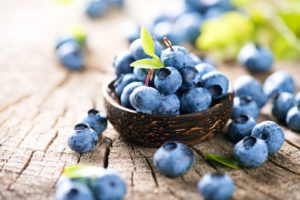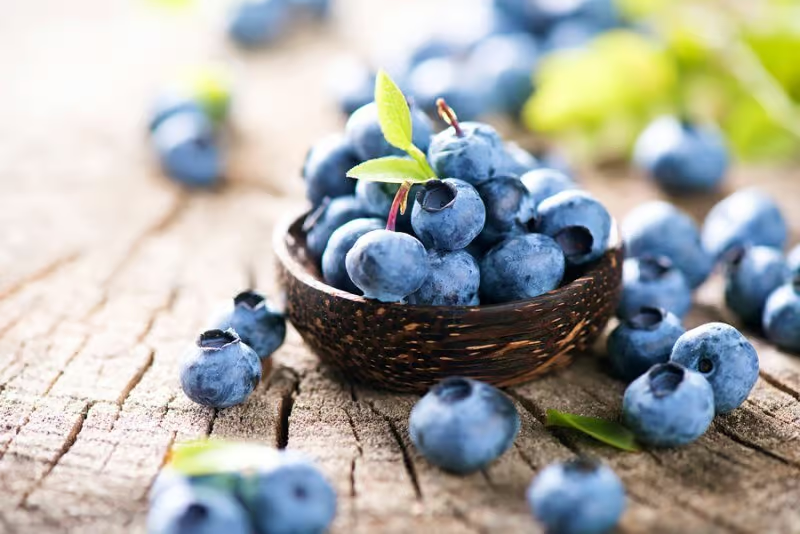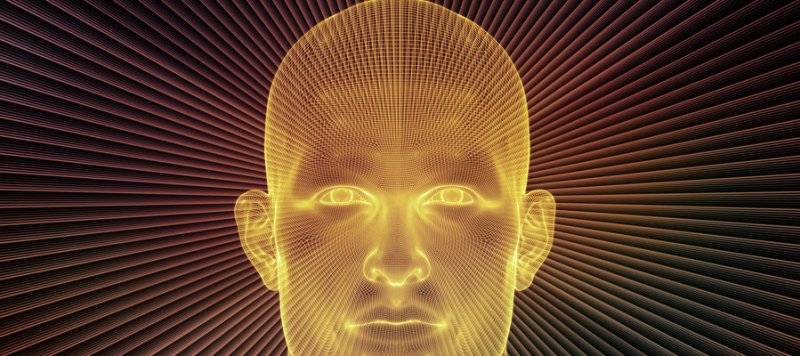Table of Contents
Research over the last several years has shown that our brain has the remarkable ability to re-wire itself throughout life.
Every time we have a new thought, encode a new memory or learn a new skill, we are building a new neural network in our brain.
And these tiny neural networks are dependent on an ample supply of BDNF.
Brain-Derived Neurotrophic Factor (BDNF) is a naturally occurring protein that is responsible for the growth of new brain cells, maintenance and survival of neurons.
BDNF prevents apoptosis (brain cell death), induces the growth of new neurons (neurogenesis) and synapses (synaptogenesis), and supports cognitive function.
Higher levels of BDNF can increase cognition, mood, productivity and memory. And decrease the risk of neurodegenerative diseases like Alzheimer’s and Parkinson’s Disease.
In this post we investigate why BDNF is so critical for optimal cognitive performance. And how you can increase BDNF naturally with a healthy diet and the right nootropic supplements.
How BDNF Supplements Work in Your Brain
BDNF is a protein that is encoded in humans by (oddly enough) the BDNF gene. BDNF is part of the neurotrophin family of growth factors which are related to Nerve Growth Factor (NGF).
BDNF regulates whether cells live or die, neurogenesis, axon growth, dendrite pruning, and the expression of proteins critical for normal brain function such as neurotransmitters and ion channels.
BDNF also controls the function of synapses and synaptic plasticity. All while continuing to modulate neuron survival.[i]
When BDNF is released, new connections form in your brain by attracting new dendrites from neurons to connect to other neurons or synapses.
This wiring together of new neural networks is how memory is formed and consolidated. A thought, memory or new skill you learn is the result of a new neural network.
When BDNF levels decline, you experience problems with memory and learning, and depression. When you decrease bdnf levels this is why nootropics like Bacopa Monnieri, L-Theanine, and Rhodiola Rosea exhibit antidepressant activity in your brain. They each have the ability to increase BDNF in your brain.
Here we’ll explore many of the nootropics available that can be easily added to our stack to increase BDNF at any age.
Nootropics to Boost BDNF
Ashwagandha
Ashwagandha is one of the most powerful adaptogens and has been used since ancient times to help the body adapt to stress. In the brain, Ashwagandha has been shown to help regenerate axons and dendrites, reconstruct synapses, and restore neural networks affected by neurodegenerative disease.
Ashwagandha performs some of this magic with better brain health by boosting levels of BDNF. And research shows that Ashwagandha can also prevent the decline of BDNF levels in the brain.[ii]
Bacopa Monnieri
Bacopa Monnieri helps increase levels of BDNF in your brain. Bacopa has been used to boost memory and as an antidepressant for millennia. The ancient Ayurvedic texts recommended Bacopa to devotees to help memorize long passages of text.
Studies show that Bacopa Monnieri improves word recall, increases attention, improves focus and reduces anxiety. A study conducted in India showed that Bacopa Monnieri extract promoted hippocampus neurogenesis by elevating BDNF levels in the brain. And as an antioxidant defense against oxidative stress.[iii]
DHA (Omega-3)
DHA (Omega-3) helps increase levels of BDNF in your brain. DHA makes up much of the gray matter in your brain. DHA regulates signaling in your brain, and gene expression. DHA influences neurotransmitters which affect memory, learning, focus and attention.
One study conducted at the University of California at Los Angeles showed that DHA could restore BDNF levels to normal, even after traumatic brain injury.[iv]
Ginseng
Ginseng as long been used to improve memory and learning. Most neurohackers using ginseng report feeling more alert. We know that stress can reduce BDNF levels in the brain. This is where ginseng comes in.
One study showed that ginseng extract affected memory and learning by boosting nerve growth factor (NGF) and neurite growth in the brain.[v] Another study showed that ginseng extract (GRb1) prevented a decline in BDNF levels in animal brains that were subjected to stress.[vi]
Gotu Kola
Gotu Kola is often called the “student herb” in Bali because it sharpens the mind. Gotu Kola extract increases dendrite and axon growth in the brain which helps boost memory.
This was demonstrated in a study conducted in China. The researchers found that Gotu Kola extract significantly increased BDNF concentrations in the brain.[vii]
L-Theanine
L-Theanine, which naturally occurs in green and oolong tea, is an amino acid. L-Theanine is used as a nootropic for anxiety, learning, mood, and focus.
A study in Tokyo investigated the mechanism of action L-Theanine exerts in the brain. And why it provides “antipsychotic-like” and “antidepressant-like” effects. The research team concluded that L-Theanine provides antianxiety and antidepressant effects “through induction of BDNF in the hippocampus and the agonistic action of L-Theanine on the NMDA receptor”.[viii]
Magnesium
Magnesium is critical to all of your body’s electrical and electrochemical activities. It’s involved in muscle contractions, heart rhythm, nerve function and brain cell activity.
Research shows that Magnesium L-Threonate easily crosses the blood-brain barrier (compared to other forms of magnesium). And once in your brain, magnesium increases NMDA receptor signaling, BDNF expression, and synaptic plasticity in the pre-frontal cortex. Increasing learning and memory while impairing fear memories.[ix]
N-Acetyl L-Cysteine (NAC)
N-Acetyl L-Cysteine (NAC) is a powerful anti-oxidant that can boost mood, lower anxiety, improve memory, and reduce compulsive behavior. There is a growing body of scientific literature exploring the use of NAC in the treatment of psychiatric illness.
Research has shown that NAC helps boost dopamine release. NAC reduces inflammatory cytokines. And NAC acts in the process of glutathione synthesis.
Scientists believe this convergence of mechanisms in the brain are due NAC’s ability to promote cell survival and growth factor synthesis, leading to increased neurite sprouting. Partly through activating the BDNF/TrkB signal pathway.[x]
Noopept
Noopept is an ampakine nootropic similar in action to the racetam-class of compounds. And is known for boosting cognition, memory, learning, perception, logical thinking and mood.
A study published by the Russian Academy of Medical Sciences in Moscow shows that Noopept stimulates Nerve Growth Factor (NGF) and Brain-Derived Neurotrophic Factor (BDNF).[xi]
Rhodiola Rosea
Rhodiola Rosea is an adaptogenic herb and nootropic that has been used in traditional medicine in Russia and Scandinavian countries for hundreds of years. This herb is known for improving alertness, energy, memory and mood, is anti-anxiety and anti-depressant, reduces fatigue, and boosts cognition and concentration to help keep your brain healthy.
Scientists found that Salidroside, the primary bioactive compound found in Rhodiola Rosea extract, significantly increases BDNF levels in the hippocampus.[xii]
Pterostilbene
Pterostilbene (PTE) is a naturally derived polyphenol antioxidant found in blueberries, grapes, and in the bark of the Indian Kino Tree. This potent antioxidant stimulates BDNF, promotes neuroplasticity (brain plasticity), is anti-anxiety, boosts dopamine, and helps cognition, learning and memory.
In several studies, Pterostilbene has been shown to modulate gene expression. PTE up-regulates those genes that stimulate apoptosis (programmed cell death). And down-regulates those genes that allow cancer cells for example, to invade and metastasize within your central nervous system.
And this gene modulation is linked to increases in CREB and Brain-Derived Neurotrophic Factor (BDNF). An increase in BDNF helps long-term potentiation needed for the development of long-term memory.[xiii]
Resveratrol
Resveratrol is a polyphenol stilbenoid and phytoalexin that certain plants produce in response to stress, such as injury or fungal infection. This potent antioxidant boosts BDNF, increases cerebral circulation, improves energy and memory, and potentially promotes longevity.
Researchers in Iran found that Resveratrol significantly boosted mRNA and BDNF in the hippocampus. And concluded “that the neuroprotective effects of Resveratrol may be at least partly due to its inducing effects on the expression levels of the BDNF mRNA”.[xiv]
Turmeric
Turmeric (Curcuma longa) has been shown to increase Brain-Derived Neurotrophic Factor (BDNF), fight depression, improve cognition, focus and libido, and protect the brain from inflammation.
Curcumin, the primary bioactive compound found in Turmeric, produces its neuroprotective effects in the brain by increasing BDNF. And mediating the BDNF/TrkB-MAPK/PI-3K-CREB signaling pathway in the brain.[xv]
In this post we’ve covered the nootropics we can use to boost BDNF levels in our brain. But the latest research shows several other natural ways to boost BDNF. And they include:
- Intermittent Fasting
- High-Intensity Resistance Training
- Sunlight or Vitamin D
- Restricting sugar intake
- Socializing
- Sleep
The Optimized Brain
Higher brain levels of BDNF helps support the survival of existing neurons, encourages the growth new neurons (neurogenesis) and new synapses (synaptogenesis), better memory, learning and cognition, and less depression.
BDNF is Miracle-Gro® for your brain and mental health. Use any one or more of the nootropic supplements detailed above to increase BDNF naturally for a highly optimized brain.
Or save some money and get effective amounts of Bacopa Monnieri extract, L-Theanine (as Suntheanine®), and Rhodiola Rosea 3:1 extract in Mind Lab Pro®.
You can get DHA in Performance Lab® Omega-3s (600 mg DHA & 300 mg EPA) which is an ultra-clean Omega-3 made with life’s™ OMEGA algae.
And get Magnesium in Performance Lab® Sleep which contains 100 mg Magnesium (as Magnesium Bisglycinate, Magnesium Taurate, NutriGenesis® Magnesium) combined with 500 mg CherryPURE® Montmorency Tart Cherry, 200 mg Lemon Balm Extract, and 200 mg L-Tryptophan.








Join The Discussion - 74 comments
Malik
October 6, 2021
Would you ever recommend 9-me-bc, I’ve heard people state that it upregulated their dopamine receptors permanently
David Tomen
October 8, 2021
Malik, 9-Methyl-β-carboline (9-Me-BC) is a research compound that has only been tested in animals. Count me in when it’s gone through clinical trials with a couple thousand humans and you can buy it at the Vitamin Shoppe.
Malik
September 30, 2021
Hey David with all the research behind Coffee fruit extract being able to increase BDNF, did you feel as if it wasn’t good enough to make it on the list
David Tomen
October 2, 2021
Malik, I still have an every growing list of supplements that still need to be reviewed. Thanks for the reminder. 🙂
Kimber Rotchford
September 8, 2021
Just read that one of the purported actions of Ketamine in reversing quite quickly longstanding depression is via promoting BDNF release. Dendrites are reportedly seen to grow within 15 mins.??!!
David Tomen
September 8, 2021
Dr. Rotchford, it’s too bad that Ketamine is not covered by insurance and costs several thousands at a clinic if you want to try it.
Don
December 28, 2020
Hey David, could you please give a list of Nootropics that have to be cycled and those that are safe to take everyday for the rest of your life. Thank you for all you do to help people.
David Tomen
December 28, 2020
Don, cycling nootropics is a controversial topic in this community. And I’m not a fan of cycling most nootropics I’ve reviewed on Nootropics Expert.
There is one exception I can think of and that’s Huperzine-A which has a 24 hr. half-life. So can only be used every 2nd or 3rd day.
Most other supplements reviewed here can be used daily and long-term IF dosage recommendations are followed. Dosages have a low to high range. Once you find the right amount for each supplement that works for you then you should be fine using that supplement as long as you want and get the benefit.
If you are on my newsletter list I sent an email awhile ago regarding cycling and tolerance. It was sent Sep. 25, 2019. Let me know if you can find that in your email queue. If not can hunt down the URL for that newsletter and post it here. The title of the newsletter was “How to Avoid Nootropic Tolerance”.
André Leroux
December 6, 2020
Hi David, to Boost BDNF which is the BEST?
Ashwagandha? Bacopa monnieri? Rhodiola Rosea?
Or, would you recommend taking the 3 at the same time?
Thank you!
Best regards
André Leroux
David Tomen
December 7, 2020
André, magnesium, and DHA are a must because most are deficient in these two nutrients. And not on this list (yet) is Lion’s Mane which arguably is the best way to boost Nerve Growth Factor and BDNF.
As for the rest of this list I suggest carefully learning the mechanism of action for each first. Because they do much more than boost BDNF. And the choose 2 or 3 that you think would benefit you most overall.
André Leroux
December 8, 2020
Thank you, David!
André
Alex
February 27, 2021
How long do you have to take Lions mane and Bacopa to see results? I’ve been taking them for two months now, but haven’t seen anything.
David Tomen
February 27, 2021
Alex, both Lion’s Mane and Bacopa can take up to 12 weeks before you experience the full benefit of each. Most experience it sooner but some take longer.
Don’t forget that the beneficial compounds in Bacopa Monnieri are fat-soluble. So that supplement needs to be taken with a healthy fat to ensure absorption.
But it is also possible that neither supplement is the right one for you.
On the other hand, Lion’s Mane main benefit is to increase Nerve Growth Factor. The only way you’ll experience that is an eventual boost in memory. Which is difficult to quantify. I personally don’t ‘feel’ anything by using Lion’s Mane. But continue to use it daily because I’m certain it is assisting in brain repair.
Brigitte
October 30, 2020
Hi David, very interesting. How would you combine these supplements?
Do you take them all together or should you cycle them with each other?
When you cycle supplements, do you alternate with a similar product instead, or do you give your body a rest (and how long)?
When 2 supplements do roughly the same thing, do you take them each at a different time of the day or alternate them entirely for instance every month?
Do you by any chance have somewhere a list saying what is redundant or incompatible with what? For instance if you take noopept is it a waste to take a similar racetam or polygala at the same time? Should you avoid taking them together because they act the same way maybe or are they acting synergetically?
David Tomen
October 31, 2020
Brigitte, there is no need to use all the supplements I describe in the post above if all you’re doing is boosting BDNF. Two or three would do. For example, you really should be using DHA, magnesium and NAC every day anyway. If you were then you’d have BDNF covered.
But I can’t do all your work for you! 🙂 I do not have a list of redundancies anywhere. But none of them are ‘redundant’ because each has a unique mechanism of action in your brain which provides so many other benefits.
And common sense tells us that using several racetams together is not a good idea. With the exception of a racetam + Noopept.
spaznos
July 12, 2020
great stuff — tnxs
John F
March 29, 2020
Is there any evidence that one can boost their BDNF levels too much?
Can BDNF become toxic at all?
David Tomen
March 29, 2020
John, BDNF is a protein and while you can’t boost it too much you can overdo it on supplements. Which can work against you. Dosages are key and even more critical when stacking a nootropic with another that has a similar mechanism of action.